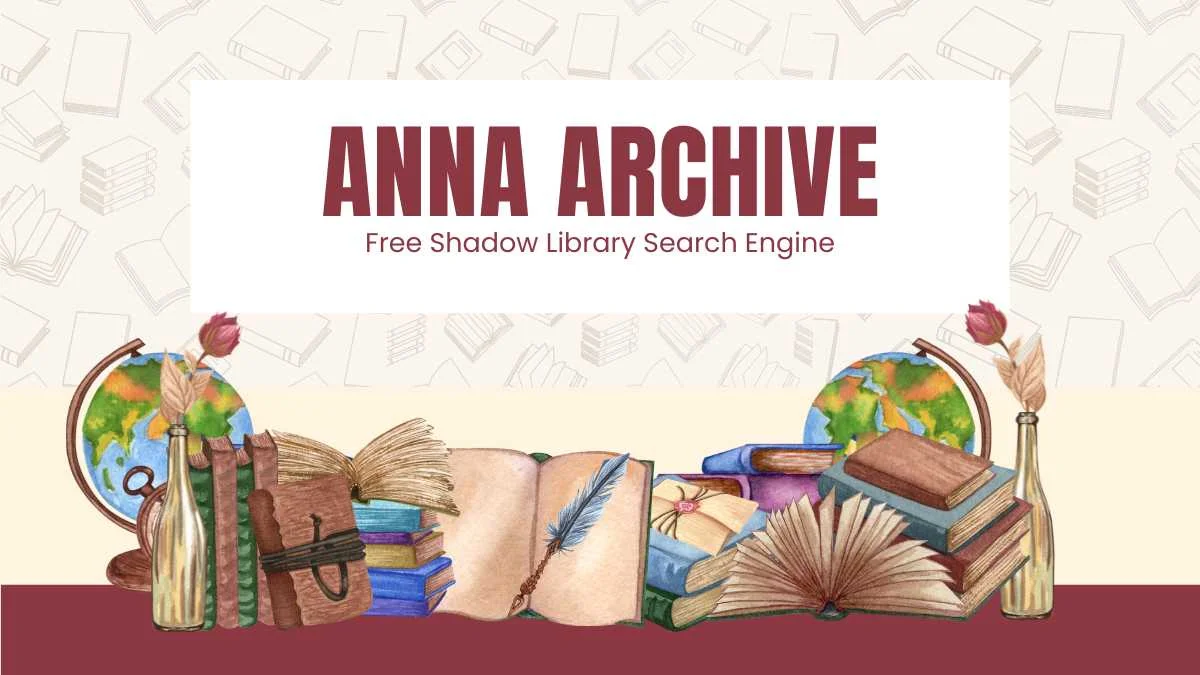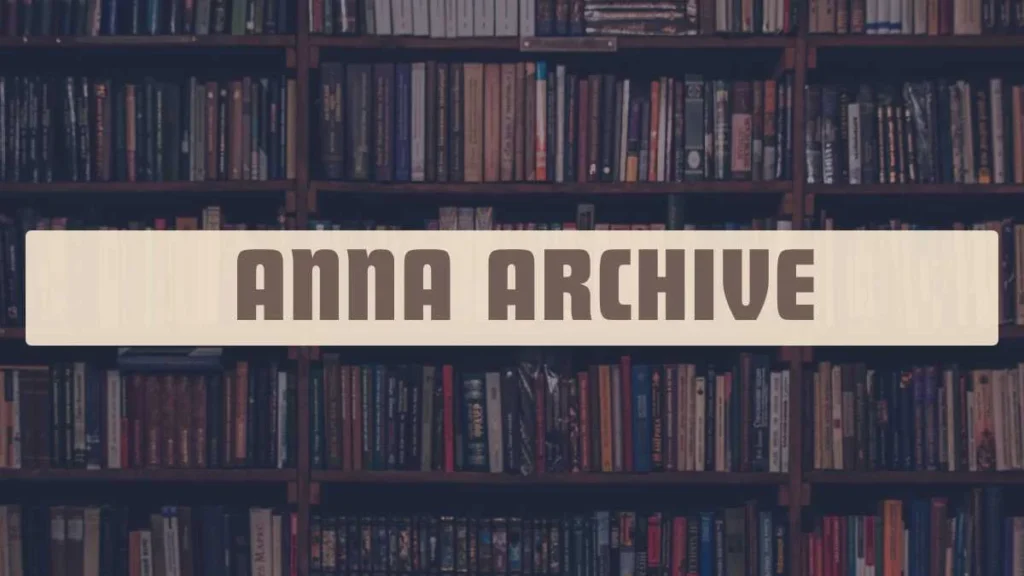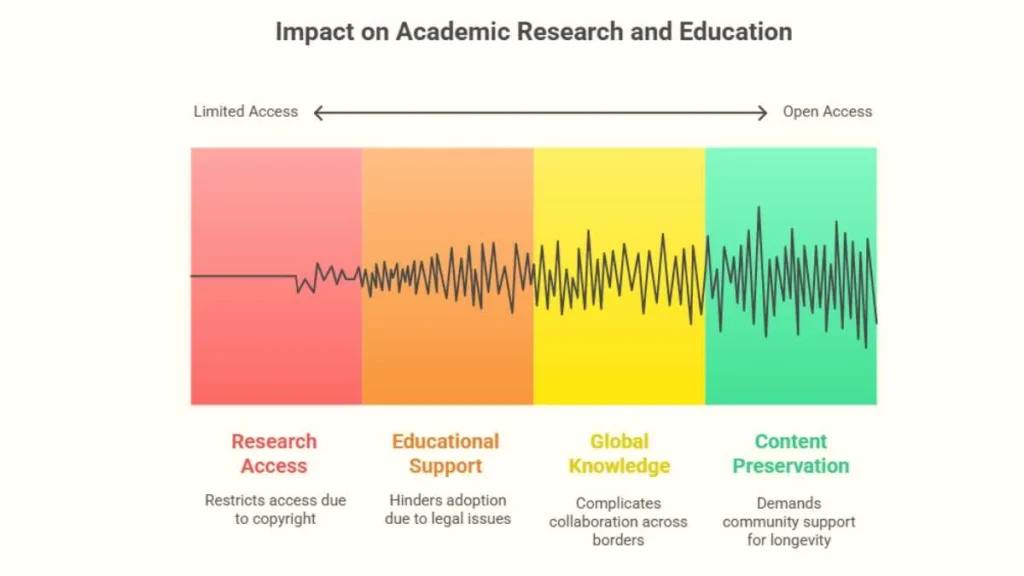GENERAL
Anna Archive: Free Shadow Library Search Engine

Anna Archive is a free, open-source shadow library search engine launched in 2022 that aggregates and indexes digital content from major online libraries like Library Genesis, Z-Library, and Sci-Hub. Created by the Pirate Library Mirror group, it doesn’t host copyrighted material directly but provides metadata and links to external download sources through torrents, IPFS, and mirror sites. The platform aims to preserve global knowledge access while operating in a legally controversial framework, offering users a unified search interface for books, academic papers, and scholarly content across multiple digital libraries.
Table of Contents
Historical Context and Development
Annu Archive was created in 2022 and was a critical reaction to the rising trend of takedowns of popular book-sharing resources. The digital library environment had become extremely dynamic, where no given platform was experiencing legal pressure and technical shocks. This climate of doubt led to an urgent requirement for a more durable infrastructure that could ensure the availability of scholarly and literary resources.
Pirate Library Mirror was a group that realized that the conventional single-point-of-failure centrism of digital libraries was flawed. They found it by developing a decentralized aggregation system that would be able to change with circumstances without breaking up operational continuity. This model was a major shift in the architecture of digital libraries and was a transition toward a long-term metadata-centric concept compared to direct content hosting.

Core Mission and Objectives
1. Primary Goals
The main underpinning idea behind Anna Archive is to preserve and democratize access to the world’s knowledge. The mission of the platform includes several strategic goals guiding its development and operational strategy.
2. Knowledge Preservation Initiative
The platform is a valuable part of global knowledge preservation, and this element guarantees the continuous availability of valuable academic and literary content despite the changing legal and technical issues. This preservation task is not only about accessibility, but also about the long-term viability of digital stores of knowledge.
3. Universal Access Philosophy
Anna Archive lives within the spirit of universal access to information, working under the assumption that knowledge must be available to all without barriers based on geographies, economics, or institutional affiliations. This philosophy is used to set the technical architecture and user interface on the platform.
4. Resilience and Sustainability Framework
The architecture and the community maintenance place priority on long-term sustainability by limiting centralization in favor of distribution and the involvement of communities to maintain the system working even during technical or legal difficulties.
Technical Architecture Behind the Platform
- Multi-Source Integration: Anna Archive aggregates content from numerous established digital libraries, creating a comprehensive index that spans academic papers, books, journals, and other scholarly materials across diverse disciplines and languages.
- Metadata Processing: The platform processes extensive bibliographic metadata, including author information, publication details, abstracts, and subject classifications, enabling sophisticated search and discovery capabilities.
- Real-Time Updates: The indexing system continuously monitors source libraries for new content, ensuring that users have access to the most current available materials through automated synchronization processes.
- Quality Assurance: Implemented verification systems help maintain data integrity and accuracy across the aggregated content, reducing duplicate entries and ensuring reliable search results.
- Cross-Platform Compatibility: Technical architecture supports integration with various file formats and distribution methods, accommodating the diverse technical requirements of different source libraries.
Impact on Academic Research and Education

Distribution Methods and Access Protocols
Anna Archive employs multiple distribution mechanisms to ensure robust content delivery and accessibility. The platform’s integration with torrent networks provides decentralized file-sharing capabilities, reducing dependence on centralized servers and improving download resilience. IPFS integration offers content-addressed storage that ensures file integrity and enables distributed hosting across multiple nodes.
Mirror site coordination represents another crucial component of the distribution strategy, providing redundant access points that maintain service availability even when primary sources face disruptions. This multi-modal approach creates a comprehensive distribution network that can adapt to changing technical and legal circumstances while maintaining consistent user access.
Is Anna Archive Legal? Understanding the Copyright Controversy
- Distributing links and metadata instead of storing copyrighted material itself makes Anna Archive technically work in the gray area, but this practice is quite controversial.
- Legality of the platform differs widely in different countries, and some areas are stricter on copyright than in others.
- The publisher and the copyright agencies claim that any move aimed at easing access to copyrighted material without approval is unlawful according to the provisions of the intellectual property laws.
- Proponents argue that the site is educational and research and may be subject to fair use protection in the courts of certain jurisdictions.
- Users and operators may have to deal with possible legal outcomes such as takedown notices, lawsuits, and even criminal charges, depending on where they are and the laws they fall under.
User Experience and Interface Design
Anna Archive is an easy interface that facilitates the use of the digital library. It provides a combined search feature, filtering and sorting, as well as advanced search tools and user feedback features. The site also allows complex queries and provides a collaborative platform. The interface is designed to support both laymen and a well-informed researcher since it is adaptable to the needs of both.
Anna Archive vs Library Genesis vs Z-Library: Key Differences
| Feature | Anna Archive | Library Genesis | Z-Library |
| Primary Function | Search engine aggregator | Direct content hosting | Direct content hosting |
| Content Storage | Links to external sources | Hosts files directly | Hosts files directly |
| Launch Year | 2022 | 2008 | 2009 |
| Access Method | Metadata and links only | Direct downloads | Direct downloads |
| Legal Approach | Avoid hosting copyrighted content | Directly hosts copyrighted material | Directly hosts copyrighted material |
Future Developments and Sustainability
The future existence of Anna Archive is determined by sustainability and community-based support supplemented with technical advancement. Being open source, the platform can be developed collaboratively and modified to meet ever-changing user demand and technical requirements. It might develop in the future in search of algorithms, recommendation systems, and integration with new distributed technologies.
Conclusion
Anna Archive design is a critical development of library architecture, demonstrating the capability to improve access to content and preservation issues in a technological solution that appears to be revolutionary. Despite functioning in a legally complex setting, the platform shows that decentralized models of knowledge sharing that emphasize resiliency and the cooperation of the community are viable.
-

 GENERAL7 months ago
GENERAL7 months agoChristofle – For Those Who Dream of Family Heirloom Silver
-

 SPORTS9 months ago
SPORTS9 months agoDiscover the World of Football with Streameast: Watch Your Favorite Leagues and Tournaments
-

 GENERAL3 weeks ago
GENERAL3 weeks agoUncovering the World of кинокрадко: The Dark Side of Film Piracy
-

 GENERAL3 months ago
GENERAL3 months agoATFBooru: Anime, Gaming, and Subculture Imageboard























